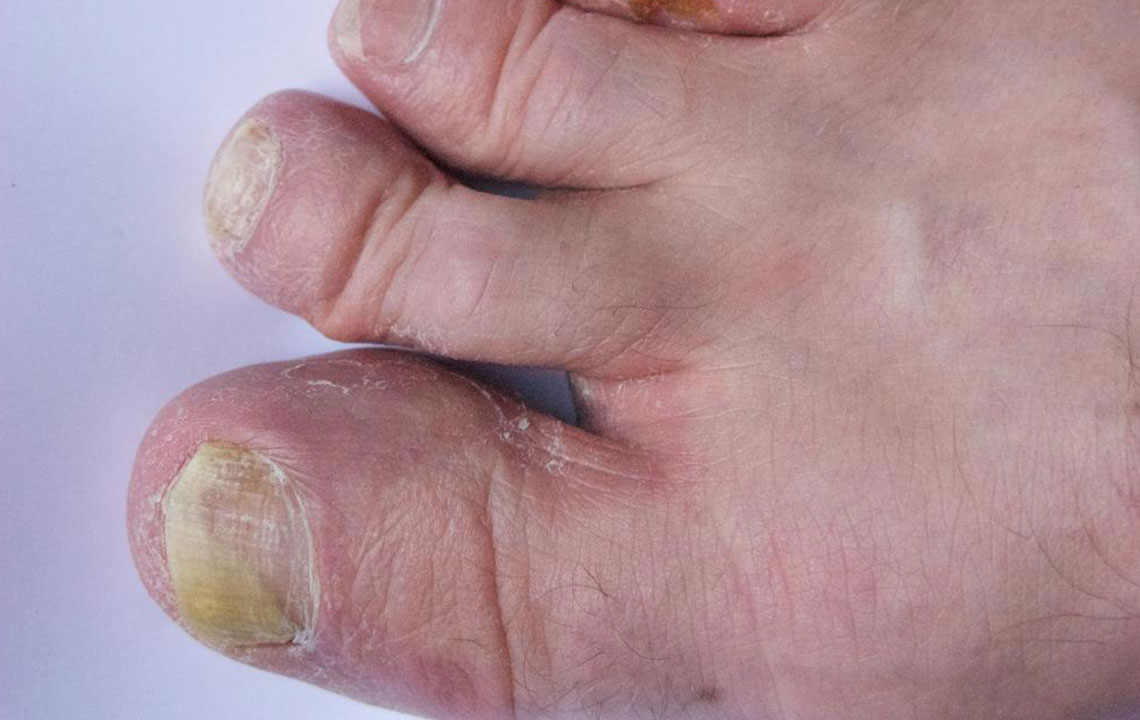Guide to Treating Toenail Fungus

Fungal nail infection, especially toenail fungus is unpleasant and tough to treat. This infection takes a slow time to develop and can cause your nail to become distorted, thick and stained. Nails can get infected, and it has been seen that toenails get affected much more frequently than fingernails. It is also medically referred to as Onychomycosis. It is not usually easy to detect the same as it may not have an obvious symptom at first. While the infection progresses, it may cause the nail to become white, yellow or green. It can also make it difficult to trim the nail as it might take an unusual shape or texture. There is a feeling of pain and discomfort especially when pressure is placed on the affected area. The nail may also experience a brittle or crumbly. Along with the toenail, the skin encircling the infected area may seem itchy or cracked and swollen. It is only when fungus begins to grow that it leads to an infection and therefore any detection of the first symptoms at the immediate stage is too elusive at first.
The fungus usually develops in a moist and warm environment and gives them a foundation for them to multiply. The fungus that is already in existence in your body can develop toenail infection. Salon treatments and dirty water can also lead to fungus. Sweaty feet, swimming in a public pool, artificial nails or contact with an infected person’s stuff, etc., if not sanitized can cause fungal infection. Men are more prone to fungal infection. If your family members are prone to fungal infection, it increases the likelihood of you to get infected as well. The long-term fungus can lead to a permanent loss of the affected area, the spread of the infection to other body parts, or you may become infected with cellulitis.
Several over-the-counter or OTT products are available but are not recommended as they may not provide any reliable result. A visit to the doctor to ascertain the infection and taking oral antifungal medication with terbinafine, itraconazole, fluconazole, and griseofulvin have proven to have effective results. These tablets may be prescribed for several months but would lead to the termination of fungus. Therefore antifungal tablets lead to a long-term solution.
There are several topical solutions that can simply be brushed over the nail in a similar way to applying nail polish. Many antifungal nail paints, Healing Natural Oils, Dr. G, and other products are available in the market. These help to treat the toenail fungus. To apply the topical solution the nails have to be trimmed properly before the first toenail fungal treatment. The applicator brush has to be used which is usually attached to the bottle cap to apply the solution on the affected nail. The topical medication can be used for several months depending upon the extent of the infection. The effectiveness of topical nail solution is debatable as they may not rid the body of the fungal infection and therefore the infection can reoccur.
A medicine made from the snakeroot extract is an antifungal remedy which is prescribed against toenail fungus and has proved to be an effective remedy.
Certain oils are also beneficial in curing toenail infection as they have antiseptic and antifungal abilities. These oils can simply be dabbed on the affected area for results. Tea tree oil has antiseptic and antifungal abilities thereby making it an effective toenail fungal treatment. Oregano oil has antibacterial and antifungal properties, thus it is an effective toenail fungal treatment. Use of oil and combination of oil should be done with care as the same may generate allergic reactions. Olive leaf extract oil has also proven to be beneficial as it is said to possess antimicrobial and immune boosting abilities. The oil is available in capsules and should be accompanied by drinking plenty of water. Ozonized oil also helps in the toenail fungal treatment.
Vinegar is a safe remedy to try, but a little evidence is available for the cure of fungus. Vicks VapoRub is used for cough suppression, but its active ingredients such as camphor and eucalyptus oil may prove beneficial for toenail fungal treatment. Garlic is also popular as it bears several antifungal and antimicrobial capabilities. Rubbing a chopped or crushed garlic piece on the affected area, this may be smelly but effective. You may also take garlic pills or consume it raw; this may be a better and less smelly toenail fungal treatment.
Prevention is better than cure therefore if once infected with a fungal infection on the nails it is advisable to keep the nails trimmed and clean. Replacing old footwear contaminated with fungi is also essential. Injury around the nails can also lead to infection. Changing your diet to protein, iron-based diet may give your body a better chance to fight toenail fungus.



